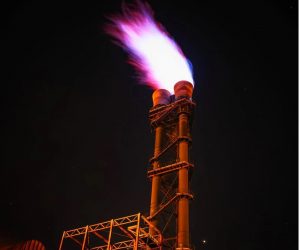The CEO of German energy giant Uniper has warned shareholders that if they do not approve the planned 50 billion euro ($52.91 billion) bailout by the German government, the stricken company would have to file for insolvency, and they could lose everything.
As the monumental Monday shareholder meeting in Duesseldorf approaches, Chief Executive Klaus-Dieter Maubach told shareholders that due to the complete loss of all gas flows from Russia, approving the government buyout and allowing Uniper to pass into German public ownership would be the only way for them to not lose everything on their investment.
Uniper had long profited off of selling a plentiful supply of cheap Russian pipeline gas from Russian energy giant Gazprom to a booming German market of residential consumers and businesses as the German economy thrived. However following the Russian military action in Ukraine, and the resulting European sanctions, the supply of gas available to Uniper gradually declined, first due to technical malfunctions which could not be repaired due to sanctions, and finally due to a sabotage attack on the underseas pipelines themselves by parties unknown.
In the absence of the cheap pipeline gas from Russia it had been contracted to receive, Uniper was forced to begin purchasing replacement supplies on the spot market as prices skyrocketed amid the European energy crisis.
On top of that, as energy prices rose, so did inflation, causing central bank actions which further cooled the economy and reduced gas demand.
In a speech at Monday’s shareholder meeting, the text of which was published on Uniper’s website on Sunday, Maubach is expected to say, “(The measures) are indispensable for this company’s future. If approval is not granted, we would have to review very critically the so-called going concern forecast for our company,” he added. “In the Management Board’s view, a possible insolvency could lead to a complete loss for shareholders.”
The company, which supplies roughly a third of German gas supplies to consumers, suffered a 40 billion euro net loss due to the loss of the Russian gas supplies. It was the largest loss any company had suffered in German corporate history.


